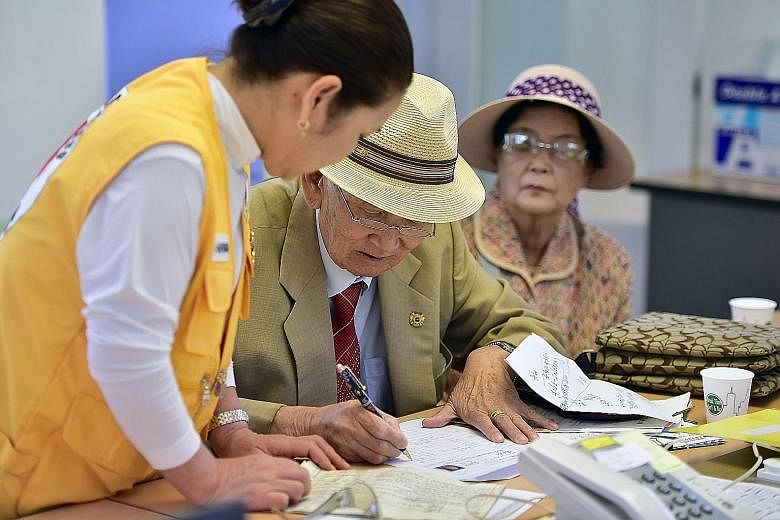SEOUL • Representatives of North Korea and South Korea yesterday began talks on holding the first reunions of families separated by the civil war in more than 18 months as their leaders seek to lower border tensions.
Red Cross officials from both countries met at the border village of Panmunjom. They were expected to focus on confirming a date and venue, with the most likely outcome being a reunion at North Korea's Mount Kumgang resort early next month.
But there is no guarantee the planned event - only the second in five years - will go ahead. Several in the past have been cancelled at the last moment by Pyongyang, which has previously sought to use the reunion issue for leverage over the South.
The Red Cross discussions are the product of an agreement the two Koreas reached two weeks ago to end a dangerous military standoff and reduce cross-border tensions after they exchanged fire last month across their heavily fortified land border.
The agreement set out ways to improve ties, including the reunions of families separated during the 1950-53 Korean War - a conflict that ended more than 60 years ago in a truce rather than a peace treaty.
Millions of Koreans were separated from their families during the war. About 22,000 have been reunited temporarily through visits since 1985. But 66,000 South Koreans, many of them in their 80s or 90s, are still waiting, according to the Unification Ministry in Seoul.
Only several hundred can be chosen for each reunion.
The two governments ban their people from communicating or meeting without specific consent.
In the past, North Korea has used the reunions to push for a revival of South Korean tours to Mount Kumgang, where the family gatherings were last held.
The resort once generated hundreds of millions of dollars for North Korea before visits from the South were suspended over the death of a tourist shot by a North Korean guard in 2008.
"Both Koreas will need to assure one another of the sincerity of their intention to improve relations," said Mr Hong Soon Jick, a senior fellow at the Hyundai Research Institute in Seoul.
"For now, they've clearly moved out of a crisis phase."
Having dialled down tensions with the North, South Korean President Park Geun Hye said last week that her government should now focus on revitalising the economy, which grew in the second quarter at the slowest pace in two years.
Her approval rating rose to the highest in a year and a half, which could help boost her reform efforts at the mid-point of her single five-year term.
In Pyongyang, North Korean leader Kim Jong Un is trying to make good on a promise to raise living standards, made several months after taking power in 2011.
His reforms appear to have helped "a portion" of North Koreans while the food security situation in the country remains tenuous, the Congressional Research Service said in a July report.
BLOOMBERG, AGENCE FRANCE-PRESSE

